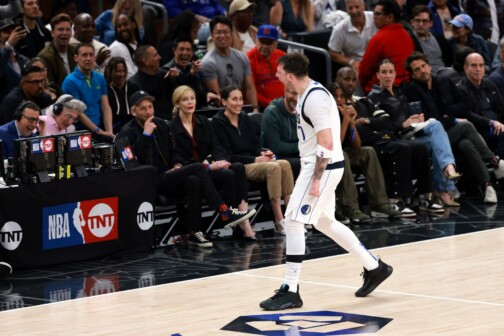Fort Worth’s Delbert McClinton is a draw in spite of himself. At-the Lone Star Cafe in New York last winter, he drew a collection of show-business luminaries ranging from nouveau-chic John Belushi of NBC’s Saturday Night Live to once-chic Welsh crooner Tom Jones. A New York Daily News reporter who visited the pseudo-cowboy room in lower Manhattan headlined her account of the event “Too Good for the 70’s.”
McClinton, a veteran honky-tonk and country rock performer, launched his solo career in 1975. His first album, recorded in Nashville and entitled Victim of Life’s Circumstances, is still critically acclaimed as the lodestone of the “outlaw” genre, mined with much commercial success by Willie Nelson and Waylon Jennings. His second, Genuine Cowhide, was a warmly-received collection of familiar rhythm-and-blues with two McClinton originals. The third and last ABC effort, Love Rustler, is best forgotten. Now McClinton has a new record label – Capricorn, out of Macon, Georgia – an energetic new band of old friends, and a larger following. But he is still the same old victim prophesied in the title of his first album.
His composition “Very Special Love Song,” according to former McClinton producer and Elvis Presley session leader Chip Young, was scheduled to be recorded by Presley the week of his death. It might have gotten McClinton money enough to control his circumstances a bit better, but it would have played havoc with his pose.
Two hours before the Lone Star appearance we bang open Perrier bottles on the mantelpiece of his room at the newly renovated Hotel Seville, a Chelsea-area monstrosity that is only a slight improvement over a parking lot. Paint peelings rain to the floor. Sax player Robert Harwell is sprawled on the bed trying to sleep, and Delbert settles himself cross-legged on the floor, ironing a pair of black jeans with a whiskey bottle.
“I’ve been writing, but no songs. Lines. Words. Feel like I’m in a period of rebirth, you know. Course I always do right before spring. Got other things occupying my mind and my time.”
On his record sales: “I’m really just waiting for the rest of the world to catch up with me, that’s all.”
I ask why his albums don’t seem to have the intensity of his live performances. He blames recording engineers as a group.
“They believe in the machine, they believe in their overdubbing. They lose their conception of music. Their role is to control the machine. If all they gotta do is push a button, they don’t have a very big role.”
Doesn’t he exercise any control over the production of his albums?
“When you’re dealing with [the record company’s] money and it’s in their pocket, until you get it in your pocket and get more control, you pretty much gotta do what you can get away with. I’d like to record the next one in Texas. Up till now there wasn’t an engineer that I cared anything about, but now there’s Phil York.”
York, of Autumn Sound in Garland, produced Willie Nelson’s break-through Red Headed Stranger with a minimum of electronic affectation.
Delbert is pacing.
“The week Love Rustler came out [his last album on ABC], that week was option time. They either had to give me $20,000 or drop me. I asked ’em, Are you gonna drop me or keep me, what’s the deal? They said they’d check and let me know. They came back and said they were picking up the option. So I borrowed $7,500 on the option from a bank in Nashville to keep the band together, and they put the record out and dropped me. All I needed was to owe more money, and all of a sudden I owed $7,500 more. To pay the band for one week – if you can talk them into it, and keep talking them into it – costs about $1,400.”
Almost as an afterthought, he turns to Harwell.
“Tonight is my night, you know.”
Harwell is blank. “For what?” Pregnant silence.
“Nothing,” Delbert sulks. “Obviously your mind is totally gone.” Harwell agrees.
That night McClinton struts before an audience of comics, critics, super-stars, jet-setters, and plain folk, all sharing his joyful sadness. After a couple dozen more one-nighters he’ll join his second wife, Donna, and their two children at their modest South Hills ranch home. Delbert is not a public person in Fort Worth. His phone number is closely guarded by a few friends.
The long-gone juke joints from the Mansfield to the Jacksboro highways are the creative ghosts in Delbert’s writing and performing; they shadow his happy domesticity. It’s a delicate balance, not to be disturbed, and it will probably drive him singing to his grave with fame not far behind, but never quite there.
I asked Bonnie Bramlett, who has known many rock stars and many tours, what it was like to sing on Delbert’s new album, Second Wind:
“You look over to him at the microphone,” she says, “and he’s always smiling. Delbert’s always smiling.”
Related Articles

D CEO Award Programs
Winners Announced: D CEO’s Financial Executive Awards 2024
Honorees in this year’s program include leaders from o9 Solutions, Baylor Scott & White, and Texas Capital, as well as our Constantine ‘Connie’ Konstans Award winner Mahesh Shetty of ILE Homes.

Basketball
What We Saw, What It Felt Like: Mavs-Clippers Game 2
A gritty game draws Dallas even in the series.
By Iztok Franko and Mike Piellucci



